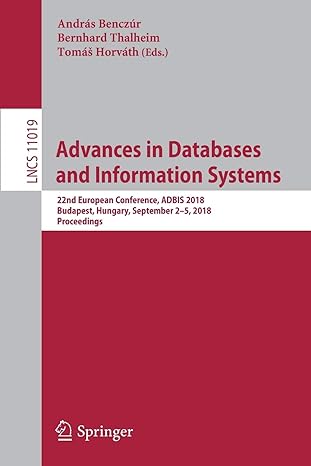Question 1 (1 point) Suppose a = 010101 , b = 110001 Which one of the following would be ~b ? Question 1 options: none
Question 1 (1 point)

Suppose a = 010101 , b = 110001
Which one of the following would be ~b ?
Question 1 options:
| none of these | |
| 100001 | |
| 101011 | |
| 001110 | |
| 110101 |
Save
Question 2 (1 point)

Suppose a = 010101 , b = 110001
Which one of the following would be a & b ?
Question 2 options:
| 100001 | |
| none of these | |
| 101001 | |
| 110101 | |
| 111011 |
Save
Question 3 (1 point)

Suppose a = 010101 , b = 110001
Which one of the following would be a | b ?
Question 3 options:
| 111011 | |
| 110101 | |
| 100000 | |
| 101001 | |
| none of these |
Save
Question 4 (2 points)

Consider the C statements below. Assume x has been assigned a value.
int mask = 0xFF000000; y = x ^ mask;
Which one of the following best describes the value computed for variable y?
Question 4 options:
| y contains the most significant byte of x complemented, with the rest of the bits unchanged | |
| y contains the most significant byte of x unchanged, with the rest of the bits 0 | |
| y contains the most significant byte of x unchanged, with the rest of the bits 1 | |
| y contains the most significant byte of x zeroed, with the rest of the bits unchanged | |
| none of these |
Save
Question 5 (2 points)

Consider the C statements below. Assume x has been assigned a value.
int mask = 0x000000FF; y = x & mask;
Which one of the following best describes the value computed for variable y?
Question 5 options:
| y contains the least significant byte of x, with all other bits set to 0 | |
| y has all bits set to 1 | |
| y contains the least significant byte of x, with all other bits set to 1 | |
| y has all but the least significant byte zeroed, with the least significant byte complemented | |
| none of these |
Save
Question 6 (2 points)

Determine x, as a logical value, after the statements below. See the hint for a note about 'logical'.
int a = 4, b = 3, x; x = !a;
Question 6 options:
| True | |
| False |
|
| |
| logical means we could use x in an if statement: if ( x ) so would x be considered True or False? | |
Save
Question 7 (3 points)

Determine x, as a logical value, after the statements below. See the hint for a note about 'logical'.
int a = 0, b = 2, x; x = !( !a && !b)
Question 7 options:
| True | |
| False |
|
| |
| logical means we could use x in an if statement: if ( x ) so would x be considered True or False? | |
Save
Question 8 (2 points)

Suppose the variable x has the value shown. Determine the result of the indicated left shiftoperation(s) as a single byte in hexadecimal.
int x = 0xC5; x
Question 8 options:
| 0x8A | |
| 0xD6 | |
| none of these | |
| 0x62 | |
| 0x14 |
|
| |
| suggestion: convert to binary, do the shift, convert back to hex | |
Save
Question 9 (2 points)

Suppose the variable x has the value shown. Determine the result of the indicated right logical shift operation(s) as a single byte in hexadecimal.
int x = 0xF6; x >> 2
Question 9 options:
| none of these | |
| 0xD6 | |
| 0xD4 | |
| 0xE5 | |
| 0x3D |
|
| |
| suggestion: convert to binary, do the shift, convert back to hex | |
Save
Question 10 (2 points)

Suppose the variable x has the value shown. Determine the result of the indicated right arithmetic shift operation(s) as a single byte in hexadecimal.
int x = 0xCA; x >> 2;
Question 10 options:
| 0xFE | |
| 0x32 | |
| 0xA8 | |
| 0x65 | |
| none of these |
|
| |
| suggestion: convert to binary, do the shift, convert back to hex | |
Save
Question 11 (2 points)

The largest unsigned value that may be represented using 6 bits is 63.
Question 11 options:
| True | |
| False |
Step by Step Solution
There are 3 Steps involved in it
Step: 1

See step-by-step solutions with expert insights and AI powered tools for academic success
Step: 2

Step: 3

Ace Your Homework with AI
Get the answers you need in no time with our AI-driven, step-by-step assistance
Get Started


 Hide hint for Question 6
Hide hint for Question 6 Hide hint for Question 7
Hide hint for Question 7 Hide hint for Question 8
Hide hint for Question 8 Hide hint for Question 9
Hide hint for Question 9 Hide hint for Question 10
Hide hint for Question 10